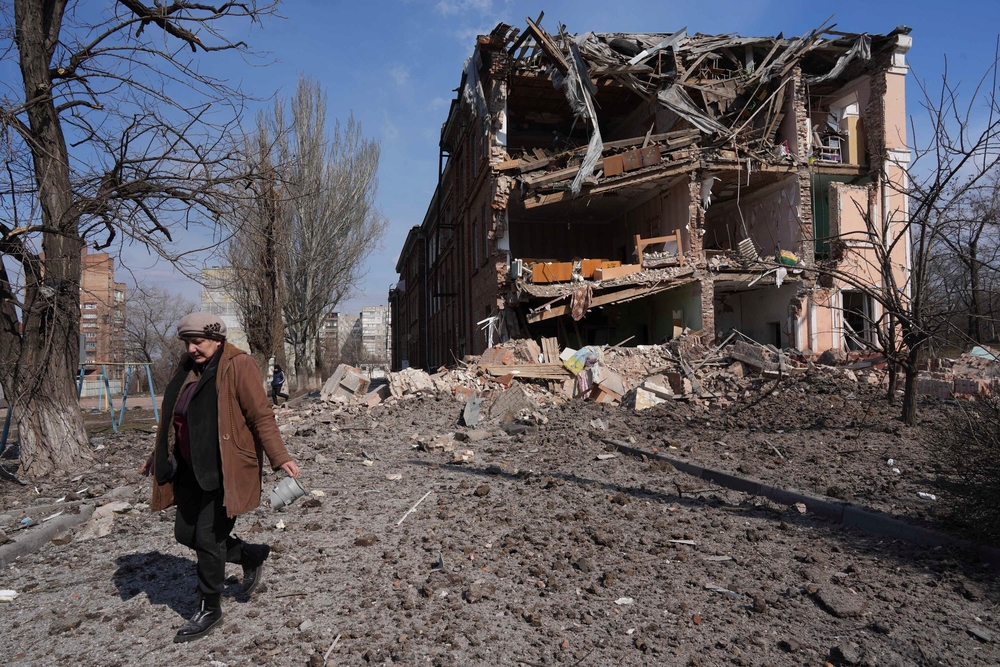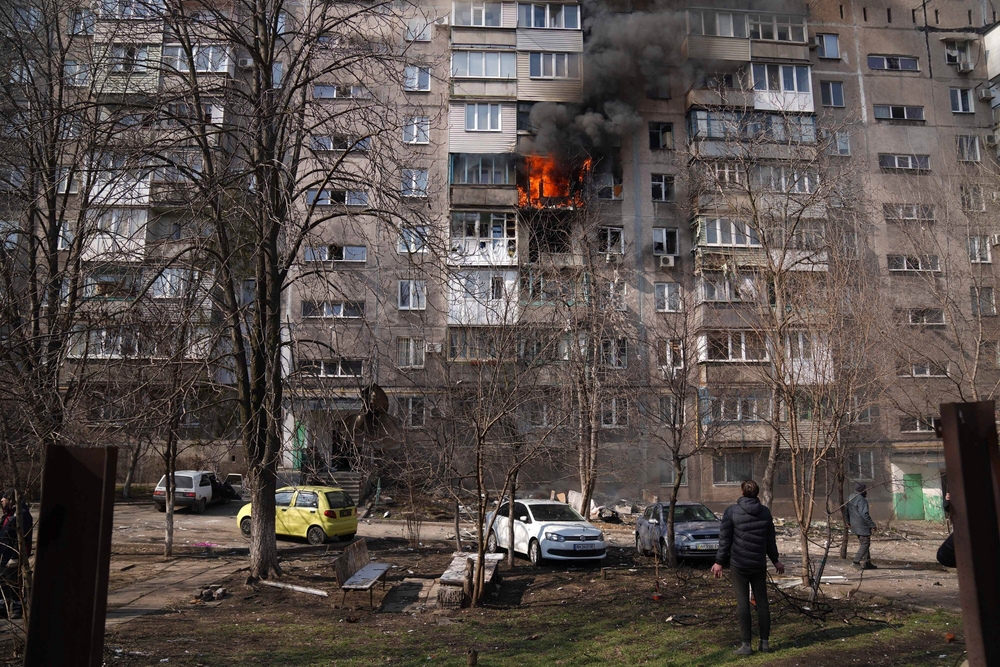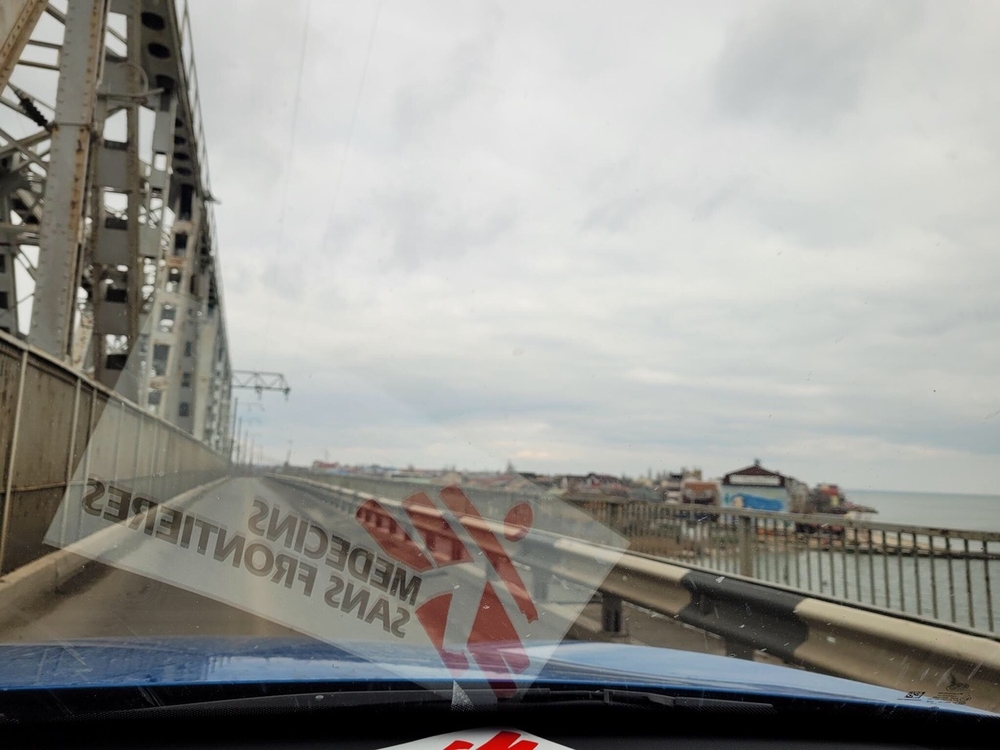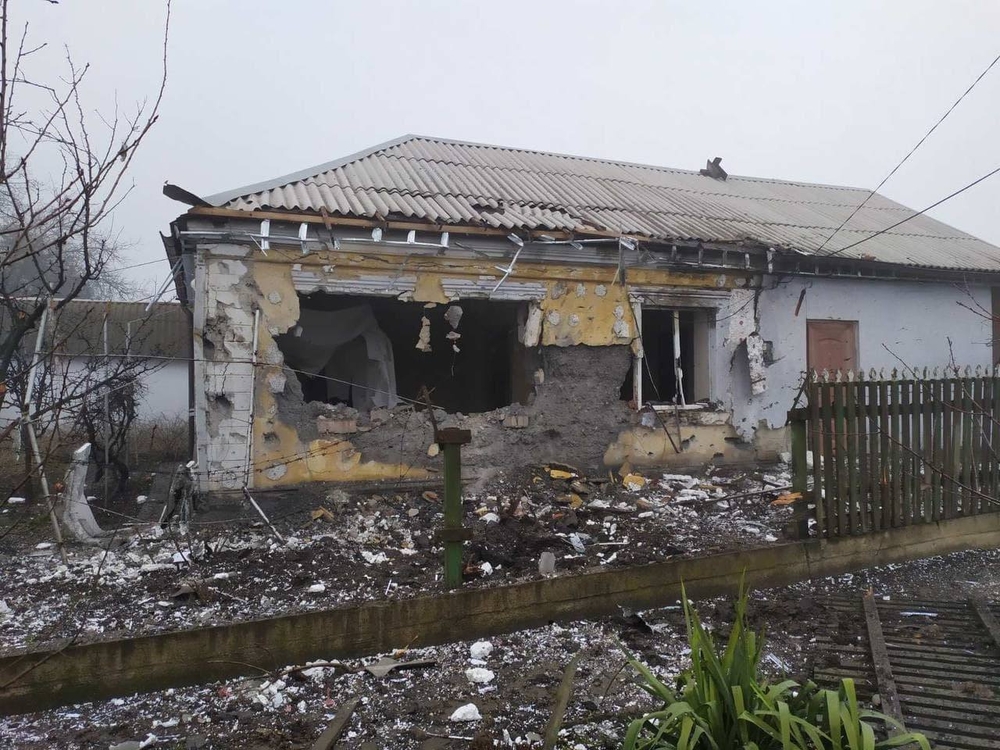I was born in Mariupol, and I have spent my whole life in Mariupol. I studied and worked and had a good time in Mariupol. And when MSF hired me, I was happy to do meaningful work too. Life was good in Mariupol.
But suddenly it became real hell.
At first, none of us could believe what was happening, because in our times, this sort of thing just shouldn’t happen. We didn’t expect a war and we didn’t expect bombs. We thought it was just talk on TV and that someone would stop this madness from happening. When I realised that it was actually becoming real, I felt sick—so sick that I couldn’t eat for three days.
In the beginning, things almost seemed more or less normal, even though we knew that nothing really was normal anymore. But then the bombings started and our world as we had known it existed no more. Our lives became weaved between the bombs and missiles falling from the sky, destroying everything. We could think of nothing else and we could feel nothing else. The days of the week stopped to have any meaning, I couldn’t tell whether it was Friday or Saturday, it was all just one long nightmare. My sister tried to keep count of the days, but for me it was all a blur.
In the first few days, we fortunately managed to donate some of MSF’s remaining medical supplies to an emergency department in Mariupol, but when the electricity and phone network went down, we couldn’t contact our colleagues anymore and we couldn’t carry out any work. The bombing started and became worse each day. Our days then consisted of trying to stay alive and trying to find a way out.
How can one describe one’s home becoming a place of terror? There were new cemeteries all over town, in almost all neighbourhoods. Even in the little yard of the kindergarten near my house, where children should be playing. How can this past ever bring a future for our children? How can we take more pain and sadness? Each day is like losing your whole life.
In Mariupol, I was moved to see so many people helping others, with everyone seeming to always worry for someone else and never for themselves. Mothers worried for their children and children worried for the parents. I worried for my sister—she was so stressed because of the bombings that I thought her heart would stop. Her fitness watch showed 180 heart beats per minute and I was so stressed to see her like this. I told her it would be stupid if she were to die from fear in the midst of all this! With time, she adapted more and instead of freezing with fear during the shelling, she told me about all the different hiding places she could think of. I was still extremely worried about her and it was clear that I needed to get her out of there.




